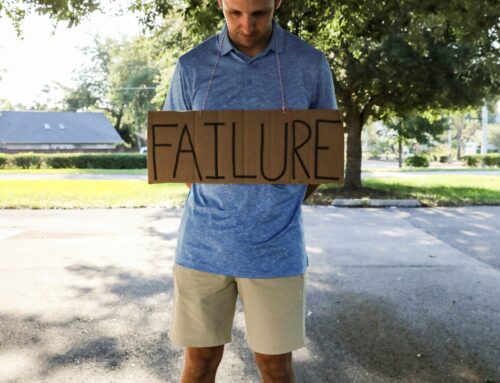
There was a TV show in the late 90s that I probably watched about twice, a workplace comedy based on a fictional fashion company called Veronica’s Closet. I barely remember it, but there was a single joke in a single episode that has stuck with me for years.
A character makes up a word in a sales memo because he can’t think of another word that means “increase,” and he’s already overused that word. So he says sales have acribitzed. A friend who knows what he did disapproves, but no one else notices that this word has not existed before. The context makes it clear what he means, and they just assume this is a word they didn’t know, and now they do know it. People start using it right and left. Of course we want sales to acribitz, they say. If sales acribitz, profit will also acribitz. Oh no, don’t tell me sales have decribitzed!
As a word nerd, I loved this joke. This is, in fact, how language works. This is actually how just about everything works.
Fifteen years ago, no one was talking about the “morning routine,” Now, I’m often asked what morning routine I would recommend to prevent burnout. Some powerful person once attributed their success to having a routine performed in the morning without fail, other people picked up that idea, and now there’s an assumption that we all must have such a thing because they are the secret to productive days.
(And in case you’re wondering, personally I don’t care much about morning routines, and there isn’t one I would recommend. If you have one that works for you, great, keep it up. My own mornings differ from day to day in virtually every aspect other than coffee and feeding my cats.)
Many other ideas are similarly very clearly made up:
The 40 hour workweek: Made up
Profession as identity: Made up
Every organizational structure ever: Made up
The idea that blazers are professional and flip-flops are not: Made up (and should probably be renegotiated due to climate change)
While it’s a bit maddening to walk around realizing this all the time, it’s also potentially empowering because it means you are free to make up things that work better for you when aspects of mainstream work culture don’t.
My neurodivergent clients often intuitively understand this, but no one has ever given them permission to act on it. I’ve seen people take massive leaps forward in health, creativity, and satisfaction because they finally gave themselves permission to make relatively small changes: working from home (or taking time off) during a flare up of chronic pain instead of powering through, leaving the office to go outside when they feel stuck, or limiting time spent in meetings to make sure they get enough solo time to recharge.
If you’re not sure what works best, or you’re worried about getting push back, frame it as an experiment. A former colleague once announced to her team that for a particular month, she was going to try out no meetings on Fridays so she could focus on wrapping up for the week and starting the next week better prepared. At the end of the month, she decided that this had gone well and she would be making it a regular thing. Beyond some very minor grumbling when scheduling things was a smidge harder, no one really objected. (And actually, post-pandemic, several companies I’m acquainted with have designated no-meeting days.)
When you make up a thing and it works, chances are it works for more than just you. And better still, other people become aware that they can make up a thing, and that is powerful. So please, make up a thing and see how it goes. Maybe your quality of life will acribitz.
Share this article

Kathryn Stinson
I help passionate people identify and dismantle the cultural drivers of burnout, so they can serve their big visions without burning out. Find information and strategies for dealing with burnout here, or reach out to work with me.
Subscribe
Each month I take a deep dive into one aspect of resisting burnout.
Monthly Deep Dive Letters name cultural dynamics that generate burnout and open doors to imagining how we might do things differently. For examples of what I write about, take a look at the blog.
No productivity tips, and no motivational pep-talks. Just in depth, thoughtful content to support you in resisting burnout culture. You’ll also be notified of new events and programs.





